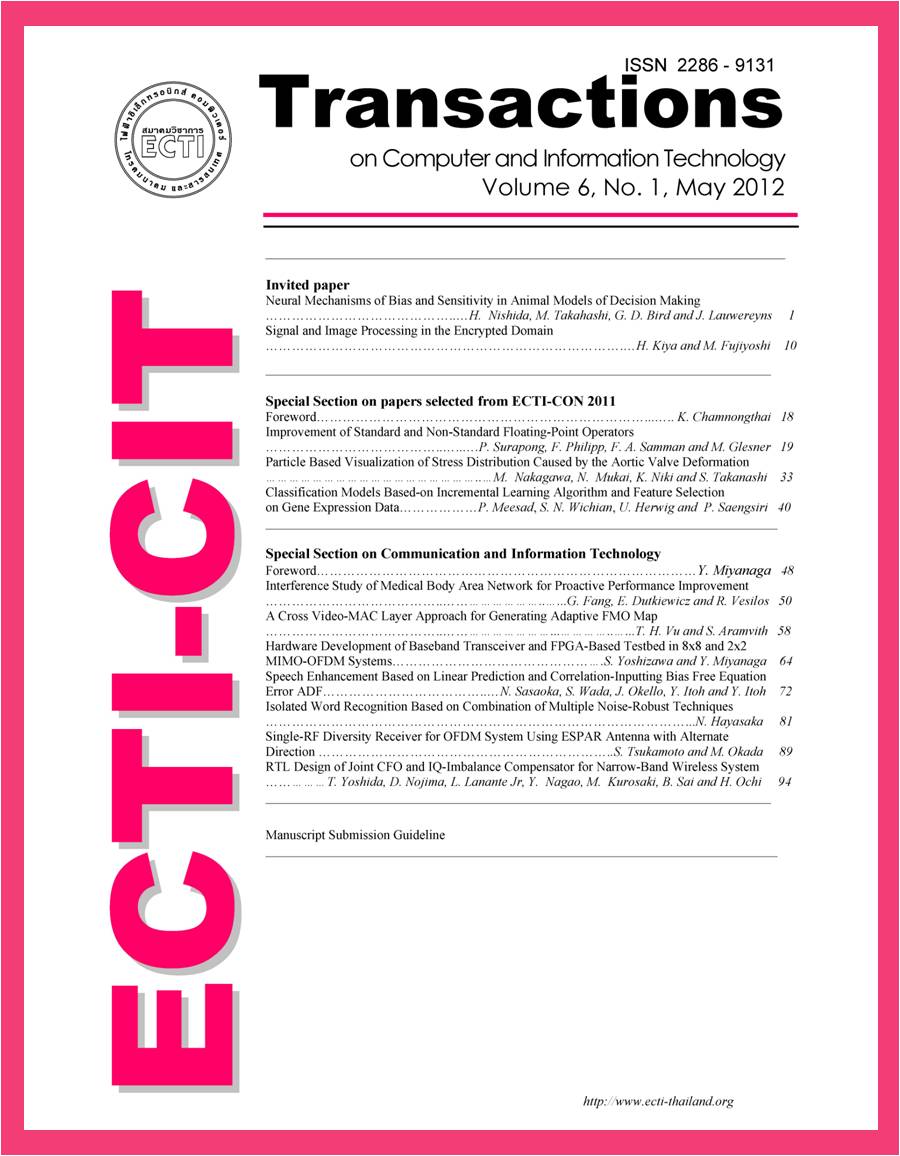Speech Enhancement Based on Linear Prediction and Correlation-Inputting Bias Free Equation Error ADF
Main Article Content
Abstract
In this paper, a speech enhancement technique to reduce background noise in noisy speech is proposed. We investigated the noise reconstruction system (NRS) based on linear prediction and system identification as a speech enhancement. Assuming that the background noise is generated from white noise by exciting a linear filter, the system identification estimates the background noise from estimated white noise. However, the white noise estimated by a linear prediction error filter (LPEF) includes residual speech, then the estimation accuracy of background noise is degraded at the system identification and the quality of enhanced speech is deteriorated. In order to reduce the influence of the residual speech, a lattice filter and a bias free equation error adaptive digital filter (ADF) are respectively introduced to the LPEF and system identification. The residual speech is reduced by the lattice filter which approximates a vocal-tract filter well. On the other hand, the bias free equation error ADF uses the cross-correlation between the whitened noise and a desired signal as a tap input. Since the speech does not have the correlation from the desired signal, the tap coefficients converge without the influence of speech.


